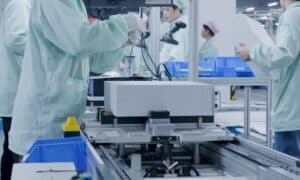New South Wales is gearing up to receive its first big battery, as planning gets underway at the State Government. In addition, residents will be allowed to install solar systems on their roofs without gaining council approval first.
These actions were initially put forward in November, but now that COVID-19 has presented a pressing need for recovery, they’ve been brought forward in a bid to spark new economic growth.

More accessible solar panel systems on the way
Current regulations mean residents need to get the green light from councils before they can install a PV system, especially if the unit sits at more than 10kW in capacity. Aged care and residential areas are also (right now) limited to systems of 100kW. This is set to change.
The intention is that the increase in flexibility will give also give commercial property owners the ability to install more efficient PV systems on their roofs.
Matt Kean, NSW environmental minister, said that there are a number of positive benefits to look forward to with the rollout.
“Over the past five years, wind and solar electricity generation has almost tripled,” he said. More than half a million homes also now have PV systems installed – a major win for the industry and consumers.
Next steps for the government include bringing electricity projects to the forefront, including big batteries and bigger capacity for both wind and solar. It’s expected that consumers will reap the benefits of lower bill costs as a result – a welcome bonus as COVID-19 continues to weigh down on the economy.
Australia sees nation-wide progress
Large batteries are already commonplace in other areas of Australia, including South Australia’s 100 megawatt-sized Hornsdale Power Reserve. These instances are proving to be hugely successful in financial contexts, with Victoria set also to follow the same path.
In the near future, it’s expected that that more amendments to state regulations will see large-scale storage options play a more crucial role in the shift towards renewable energy. For example, in November last year, proposed changes already highlighted more than 15 applications for funding of standalone battery developments, all to sit under a $75 million program.
As NSW prepares itself to rollout cleaner initiatives like this, households and businesses will likely feel relief in the form of lower energy bills and more lenient council approvals.
RELATED: #Stayhome: How Australians save on costly electricity bills during COVID-19











































